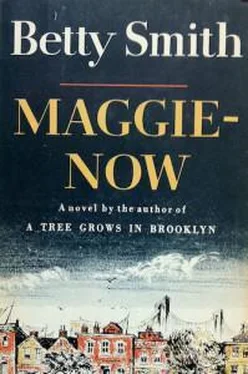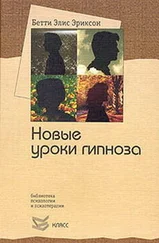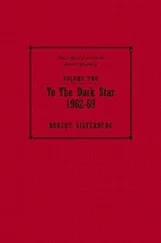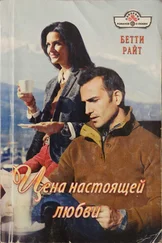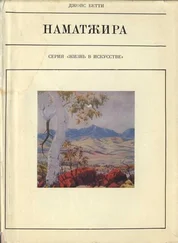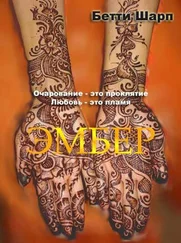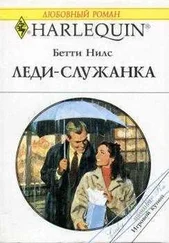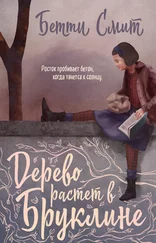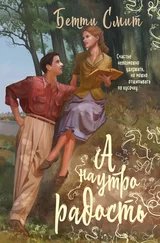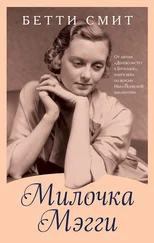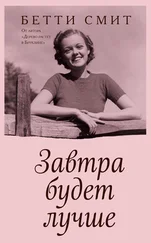Бетти Смит - Maggie-Now
Здесь есть возможность читать онлайн «Бетти Смит - Maggie-Now» весь текст электронной книги совершенно бесплатно (целиком полную версию без сокращений). В некоторых случаях можно слушать аудио, скачать через торрент в формате fb2 и присутствует краткое содержание. Жанр: Проза, на английском языке. Описание произведения, (предисловие) а так же отзывы посетителей доступны на портале библиотеки ЛибКат.
- Название:Maggie-Now
- Автор:
- Жанр:
- Год:неизвестен
- ISBN:нет данных
- Рейтинг книги:3 / 5. Голосов: 1
-
Избранное:Добавить в избранное
- Отзывы:
-
Ваша оценка:
- 60
- 1
- 2
- 3
- 4
- 5
Maggie-Now: краткое содержание, описание и аннотация
Предлагаем к чтению аннотацию, описание, краткое содержание или предисловие (зависит от того, что написал сам автор книги «Maggie-Now»). Если вы не нашли необходимую информацию о книге — напишите в комментариях, мы постараемся отыскать её.
Maggie-Now — читать онлайн бесплатно полную книгу (весь текст) целиком
Ниже представлен текст книги, разбитый по страницам. Система сохранения места последней прочитанной страницы, позволяет с удобством читать онлайн бесплатно книгу «Maggie-Now», без необходимости каждый раз заново искать на чём Вы остановились. Поставьте закладку, и сможете в любой момент перейти на страницу, на которой закончили чтение.
Интервал:
Закладка:
And soon his waiting was ended. He undid her arms and took the child from them.
He walked down th' hospital corridor carrying the child.
A nurse with briskly tapping heels walked past him and smiled back over her shoulder.
"Nursery's down the corridor, Father,' she said. 'First turn to the right."
"I know," he said.
~ CHAPTER 7'TI7ENTY-ONE ~
.~10LLY MOIIIARrrY had been unable to come to the funeral. She had nursed Aunt Henrietta through her final illness. Molly herself was frail and failing and the news of her only child's death had prostrated her. Cousin Robbie came down from Boston to represent hiary's kin.
Mary had been insured for enough to provide a simple burial and to bun a grave. Cousin Robbie had instructions from The.Uissus; Mary could be buried with her father provided the money Pat saved on the grave would be used to pay off the balance of the loan on the house. Pat agreed. So the little house was freed.
Before he left, Glusin Robbie said: "Aunt Molly said she'd
~ ~44 1
be glad to take the children but on account of her poor health. . and she's too old. . But my girl, Sheila, said she'd be tickled tO death to have them. With six of her own, she said, two more won't make much difference.
Maggie-Now would be a help and you could send so much a week for board…."
"I'll keep me children w ith me," said Pat. "Maggie-Now knows how to run the house and she'll look after the boy."
"She's young. She shouldn't be tied down with a baby.
Maybe she wants to live her own life."
"Me mother was tied down with two children when she was Maggie-Now's age and it didn't harm her. The girl is strong and healthy."
"The responsibility. "
"It will keep her out of trouble. She'll know the work of a home and a baby. She won't be so anxious to marry the first clown what comes along.' "She's not going to have much fun."
"And is that any of your business?"
"No, Patrick," said Cousin Robbie slowly. "It's none of mv business."
Maggie-Now had to leave school, of course.
She didn't mind at all. She was not the studious or bookish type. She missed her school friends and the nuns who were her teachers. Otherwise she was glad to be done with school. When she dropped school her girl friends tried to continue to include her in their activities but it couldn't work out because MaggieNow was tied down with a house and a baby.
The few boys she knew, had taken walks with and joked around with, drifted away. Maggie-Now seemed a woman all of a sudden and it made a boy feel "funny" to see a girl with whom he had romped in Cooper's Park just weeks ago now trundling a baby carriage through that same park.
Her friends now were more mature: Lottie, of course, and a neighbor or two who had helped her out with the baby at first.
The shopkeepers, for the most part, liked her. They admired her courage and wished her well. Mr. Van Clees, the Dutch cigar maker, whom Maggie-Now saw twice a week when she bought her father's clay pipes and tobacco, became her friend. He took
[~4; 1
almost a paternal interest in the baby boy. And later she was friends with the Vernachts, a German couple whom she met through Mr. Van Clees.
She cared for the baby and ran the house for her father.
Her arrangements with him were simple. He gave her two dollars to buy groceries. When the money was gone, she asked for more. He always said: "What 'd you do with the last two dollars I gave you>" She always answered: "I
spent it." Then he gave her another two dollars.
She collected the rent and put the money in the bank.
Once a year she went down so Borough Hall to pay the taxes. She had expected her father to handle that but he had said: "Since you're going to be the owner someday, you learn to handle property." Sometimes there was a little surplus in the bank after taxes. Other times the surplus melted away when the rooms were tenantless.
Maggie-Now was a natural-born mother. She washed the baby and fed him and changed his diapers and had him out in the air for a couple of hours each day. When he started to walk and was knowing enough to get into mischief, she took a true mother's privilege and spanked him but always with a kiss as Sheila had done with her children Like a mother, she thought Denny was exceptionally handsome and she enjoyed the admiring looks given him when she took him out in his buggy. She wanted nice clothes for him, but when she asked her father's permission to use some of the surplus rent money to buy them, he refused, saying the money must be saved for hard times for his old age. "When you're married to a man in business for himself you'll have everything you need, while me, who slaved me life away for me children, will be sitting and starving in a ballroom in me old age."
Because she wanted pin money of her own and because time sometimes hung heavy on her hands, she, as the expression went in the neighborhood, "tool; in piecework."
She "turned" kid gloves. They were made in a factory in Greenpoint and sewn wrong side Otlt on machines. She took bundles of them home to turn right side out. She got twenty cents a hundred pair and made two or three dollars a week in her odd hours.
When she got bored with the gloves, she went to a shoe factory and got bundles of bronze leather slipper vamps and
~ i46]
sewed cut bronze beads on a design stamped on the vamp.
She liked the work and got satisfaction out of her neat stitches.
Bronze slippers went out of style and she "made beads."
These were necklaces of tiny white beads with yellow or blue daisies at intervals much like Indian bead\vork. She worked with five threaded needles simultaneously and enjoyed the emergence of the daisy design.
She considered herself fortunate to be able to earn a few dollars a week without 1` aving her home. She used the money to buy nice things for the baby and, once in a while, an item of clothing for herself.
Each time she bought a ne\N boiltlet for L)enny or a new pair of rompers, she brought him over to l\lr. N: an Clees's store to show him off.
"Hello, liddle Rudder," \vas his:,reethlg. 'Ho~v goes it, hem "Fine."
Then he'd ask questions about the baby how much did he vveigh now, did he cry a lot and did he eat good. He was astonished at each answer He weighs all that? My!
Never cries and eats everything? My! ~ wonder of a boy!
A wonder!
"And do you miss you! school, Miss l\la~gie?"
"Yes. The sisters and the girls. But I sure don't miss all that homework."
He gave Denny a little blue candle on his first birthday.
("in case'n you have a birthday cake for him, Miss Maggie.") He gave him two on his second birthday and started a tradition.
Once Maggie-No\v, thanking him, said: "oh, Mr. Van Clees. you should be Denny's godfather."
"That I could not be, Bliss Maggie. 1 ain't a Catholic.' "But I see you at Mass every Sunday. Used to, anyhow."
"I go by the Catholic churcl1 because it's nearer as my church. But I ain't a Catholic."
"I see ' said Maggic-Now. 13ut she didn't see at all.
.\lr. Sian Glees, a bachelor, was a chubliy Jittle man NNho hati come from Elolland when he svas quite Young.
He had a little money and he bought a little building with a one-windoNv store and living quarters above it. He was a cigar maker and he set up his work table in the store
`\;indow. He worked at a long table 1~14'1
Читать дальшеИнтервал:
Закладка:
Похожие книги на «Maggie-Now»
Представляем Вашему вниманию похожие книги на «Maggie-Now» списком для выбора. Мы отобрали схожую по названию и смыслу литературу в надежде предоставить читателям больше вариантов отыскать новые, интересные, ещё непрочитанные произведения.
Обсуждение, отзывы о книге «Maggie-Now» и просто собственные мнения читателей. Оставьте ваши комментарии, напишите, что Вы думаете о произведении, его смысле или главных героях. Укажите что конкретно понравилось, а что нет, и почему Вы так считаете.
